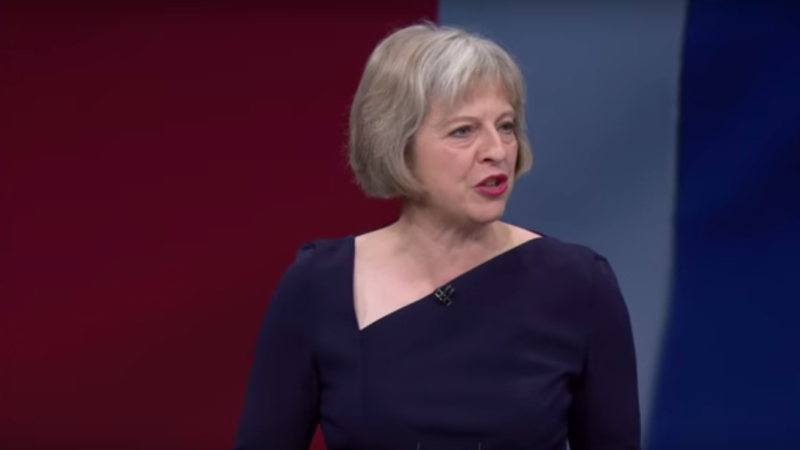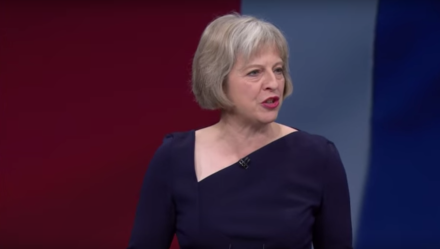

Theresa May yesterday took to the podium at Tory party conference and channelled her inner Enoch Powell. In a bid to prove her leadership credentials she made a virulently anti-immigration speech, but it was riddled with inaccuracies. She somewhat confusingly tore apart her own record on immigration as Home Secretary and warned that “mass migration” makes social cohesion impossible. The subtext of this: if you’ve got problems, blame migrants. Here’s why she is so sorely wrong.
1. Migrants aren’t responsible for strained public services.
May said that current levels of immigration make it “difficult for schools and hospitals and core infrastructure like housing and transport to cope”. In reality, people from abroad tend to contribute, not take, from key public services. In hospitals, you’re more likely to be treated by a person from abroad than see them in the waiting room. And despite common misconceptions, migrants rarely abuse the system; health tourism only makes up 0.3% of all NHS spending.
2. It’s Government policy that’s leaving us all worse off.
Public services are buckling under the weight of current pressures because the Government hasn’t been investing in them properly. House building is low, teachers are leaving their profession because they can’t cope with unmanageable workloads in an education system not fit for purpose and most of our transport has been sold off to private companies (or foreign state-owned ones) that make cutbacks for the sake of profit. Low pay is a product of a labour market the Government won’t regulate. Migrants didn’t create these problems and incoherent Tory policy is only making them worse.
3. Her numbers don’t add up.
The Home Secretary claimed that economic gains from high immigration are “close to zero”. That’s just not true. Aside from the work they do in key public services, people from abroad made a net contribution to public finances of £25 billion in taxes between 2001 and 2011.
4. Mass migration doesn’t make cohesion impossible.
We’re told over and again that migration is bad for societies, and in some mixed communities people feel disenfranchised. But evidence suggests diversity is actually good for social cohesion or at the very least isn’t proven to be the cause of social fractures. Instead of taking a measured look at the facts, May capitalised on anti-immigration sentiment for political gain and said that levels of migration, and by default migrants, make cohesion impossible. More often than not anti-immigration sentiment is rooted in fear; support for Ukip tends to be high in areas of low immigration.
5. It’s not good refugee vs. bad “economic migrant”.
Over the summer the death toll in the Mediterranean continued to rise; the British public were jolted into empathy when the media published a picture of three-year-old refugee Aylan Kurdi lying dead on a beach. But yesterday May drew a clear demarcation between refugees and migrants. This is an important distinction to make but it shouldn’t be used to deem “economic migrants” bad. This term has become toxic, implying that these people are out for what they can get. Many people who migrate to Britain to improve their life chances and contribute to society, they shouldn’t be castigated for doing so.
Immigration is a political pressure point; one that May knew she was pressing. It’s a difficult subject for Labour but it’s one on which they need to establish a coherent, positive narrative. This isn’t an easy task but it’s time to start on it now.




More from LabourList
‘Factionalism at the top is weakening Labour – and handing a gift to Reform’
‘Europe must stand strong on its own as US security guarantees grow conditional’
‘Tackling poverty should be the legacy of Keir Starmer’s government’